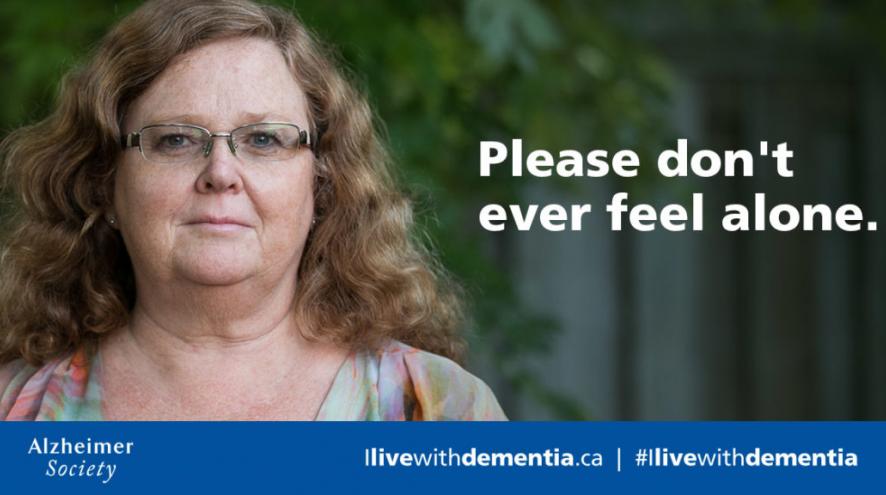Yes. I live with dementia. Let me help you understand: Jane Kennedy
Jane Kennedy lives in Newmarket, Ontario, where she works as a teacher. She is also a caregiver to her mom, Eileen, who was diagnosed with Alzheimer’s disease in 2016.

My mom was officially diagnosed at age 84. However, there were signs already of dementia for some time. The diagnosis didn’t come as a complete surprise because my grandmother had it and I was already seeing some early signs with my mom. I would say though that I also experienced some denial around the signs she was displaying.
Learning to live with dementia
Throughout these years, I’ve noticed how my mom was always there to take care of the most precious gift she has—her family. She took care of both her father and her husband, who both had cancer. She took care of her mom, who had Alzheimer’s. She’s been the caregiver to so many people while being a cancer survivor herself.
Watching my mom in action, taking care of the people closest to her, I could do nothing but admire her strength. And she did it with such patience, love and understanding, too.
Now that my mom has been diagnosed with Alzheimer’s disease, it’s time for my brother and I to take care of her. As the Alzheimer’s progresses—slowly, and I am grateful for that—I’ve learned to live with this disease on a daily basis. Still, we make sure to constantly adjust our routine and lifestyle to help her live with the disease.
The healthcare system
My experience with the healthcare system was very good. They were forthright and honest and they suggested treatment through medications.
As well, the people who were around me were very supportive. I found that most were familiar with Alzheimer’s and could relate to what I was going through or what I would be going through in the future.
Having gone through the diagnosis with my mother and helping her, I have first-hand experience and insights that can help others. For example, I know that there’s support out there to help you live with the disease and with the right help you can live a full, comfortable life. There are things you can do to help slow down the progression. In my opinion, slowing down the progression and finding a cure for future generations are the key to taking away the stigma. It’s important to know that there are support systems available.
Here are my tips to help you understand
- Please don’t ever feel you are alone. Use the support systems that are available.
- Remember, it affects everyone differently.
- Don’t shut people or support out.
- Read and learn as much as you can about the disease. Education allows you to understand and help others
Visit ilivewithdementia.ca to read more stories by people like Jane and learn more about Alzheimer’s Awareness Month.
